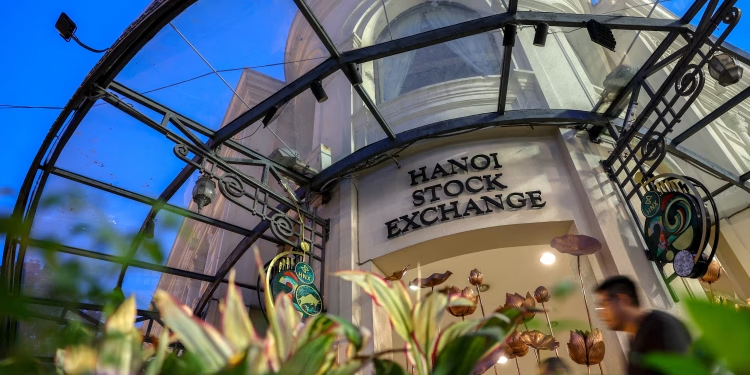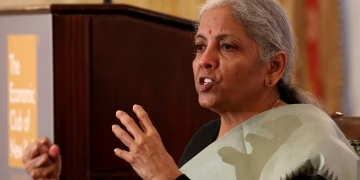South Korea has been witnessing a troubling rise in deaths among its fishermen, prompting concerns about the safety of one of the country’s most vital yet hazardous professions. Every year, scores of fishermen perish while at sea, often due to capsized vessels, storms, or accidents during fishing operations. While safety protocols and modern equipment have improved over time, the death toll continues to be alarmingly high, raising questions about whether climate change and changing ocean conditions are playing a significant role in this recurring tragedy.
The Risks of Fishing in South Korea
Fishing has long been one of South Korea’s mainstays, both economically and culturally. Coastal communities, especially in regions like Jeju, Busan, and the southern provinces, heavily rely on fishing for their livelihoods. These communities often operate small to medium-sized vessels that are particularly vulnerable to sudden weather changes.
Despite regulations requiring life jackets, navigational tools, and regular safety drills, the maritime environment remains inherently risky. Fishermen face challenges such as rough waves, strong currents, and unpredictable storms. According to the Ministry of Oceans and Fisheries, around 50 to 60 fishermen die annually in South Korean waters, with most fatalities occurring in winter months when the seas are roughest.
Increasingly Unpredictable Weather Patterns
Experts argue that climate change may be exacerbating these dangers. The Korean Peninsula has experienced a noticeable shift in weather patterns over the last two decades, with more frequent and severe storms, higher sea temperatures, and rising tidal waves. Dr. Park Hyun-Joo, a marine climatologist at Seoul National University, explains that these changes directly affect sea conditions, making them more hazardous for fishermen. “The combination of warmer oceans and shifting atmospheric patterns is producing storms that are less predictable and often more intense,” he notes.
For instance, typhoons in the region, which used to follow relatively consistent paths, have begun appearing in unusual months or moving faster than anticipated. These sudden storms catch fishermen off guard, leading to capsizing incidents or vessels being stranded at sea. The increasing frequency of these extreme weather events correlates with the rise in maritime fatalities, suggesting that climate change may indeed be a contributing factor.
Ocean Changes and Fish Migration
Beyond weather patterns, changes in the ocean itself are creating challenges for the fishing industry. Rising sea temperatures, acidification, and shifts in currents are affecting fish populations. Traditional fishing grounds are yielding fewer catches, forcing fishermen to venture farther into deeper, more dangerous waters. According to a 2024 report by the Korea Fisheries Association, over 70% of fishermen have had to adjust their routes in the last decade due to declining fish stocks near the coast.
These longer trips increase exposure to harsh maritime conditions and extend the time fishermen spend on vessels that may not be fully equipped for extended voyages. Dr. Lee Sang-Min, an oceanographer at Pusan National University, notes, “Fishermen are being pushed into riskier areas because climate change is altering the distribution of commercially viable fish. This is a hidden cost of global warming that doesn’t get as much attention as storms or sea-level rise.”
Government Measures and Safety Initiatives
The South Korean government has recognized the ongoing dangers to fishermen and has implemented several safety measures. These include stricter licensing requirements, mandatory safety equipment on all vessels, improved weather warning systems, and rapid-response rescue teams stationed in high-risk areas. Additionally, technology such as GPS tracking, emergency beacons, and satellite communication devices has become more widespread, aimed at reducing response times during maritime accidents.
However, despite these efforts, the problem persists. Analysts argue that while technology and regulation help, they cannot fully counteract the increased hazards brought about by climate change. Small, independent fishing operations often cannot afford the latest safety equipment or may lack training in handling severe weather, leaving them particularly vulnerable.
Stories from the Sea
Personal accounts from fishermen underline the dangers they face. Kim Jae-Hoon, a veteran fisherman from Jeju Island, recalls a harrowing encounter with a sudden typhoon in 2022: “The weather was supposed to be calm, but within hours, the waves grew taller than our boat. We barely made it back, and many in my community weren’t so lucky.”
These stories are common along South Korea’s coast, where older boats, insufficient safety gear, and the unpredictable sea converge. Families of lost fishermen often campaign for better safety protocols, but systemic challenges such as climate variability and economic pressures complicate solutions.
International Comparisons
South Korea is not alone in facing climate-related challenges to its fishing industry. Countries like Japan, the Philippines, and Indonesia are also seeing shifts in fish populations and increased storm activity impacting fishermen. Studies from the Food and Agriculture Organization (FAO) suggest that rising ocean temperatures and extreme weather are globally increasing the occupational risks for fishermen.
In Norway and Canada, by contrast, stricter regulation of small fishing fleets and advanced forecasting technologies have helped reduce fatalities. South Korea may look to these countries for strategies to combine safety, climate adaptation, and sustainable fishing practices.
Long-Term Implications
The continued risk to fishermen has economic and social consequences. Fishing communities contribute significantly to South Korea’s food supply, export earnings, and cultural heritage. Losing experienced fishermen not only reduces productivity but also erodes traditional knowledge that is difficult to replace. Moreover, with younger generations less willing to enter a profession with such high mortality rates, the industry faces a potential labor shortage, further complicating efforts to sustain the sector.
Climate scientists argue that mitigating the effects of climate change is essential not just for environmental reasons but also for occupational safety. Developing early warning systems, improving vessel design to withstand extreme conditions, and adapting fishing practices to changing fish distributions are critical steps.
Conclusion
The rising deaths among South Korea’s fishermen highlight a complex interaction of occupational hazards, economic pressures, and climate change. While storms and accidents have long been part of life at sea, changing ocean conditions and unpredictable weather patterns are amplifying the risks.
Addressing the crisis requires a multifaceted approach: robust government regulation, investment in safety infrastructure, adaptation to environmental changes, and awareness of climate impacts on fisheries. The plight of South Korea’s fishermen underscores the human dimension of climate change, reminding the world that global warming is not an abstract concept but a direct threat to livelihoods, safety, and cultural heritage.
As the government and communities grapple with these challenges, there is an urgent need to balance economic survival with safety and sustainability. For the tens of thousands of fishermen navigating South Korea’s coasts, timely action could mean the difference between life and death in a rapidly changing marine environment.












